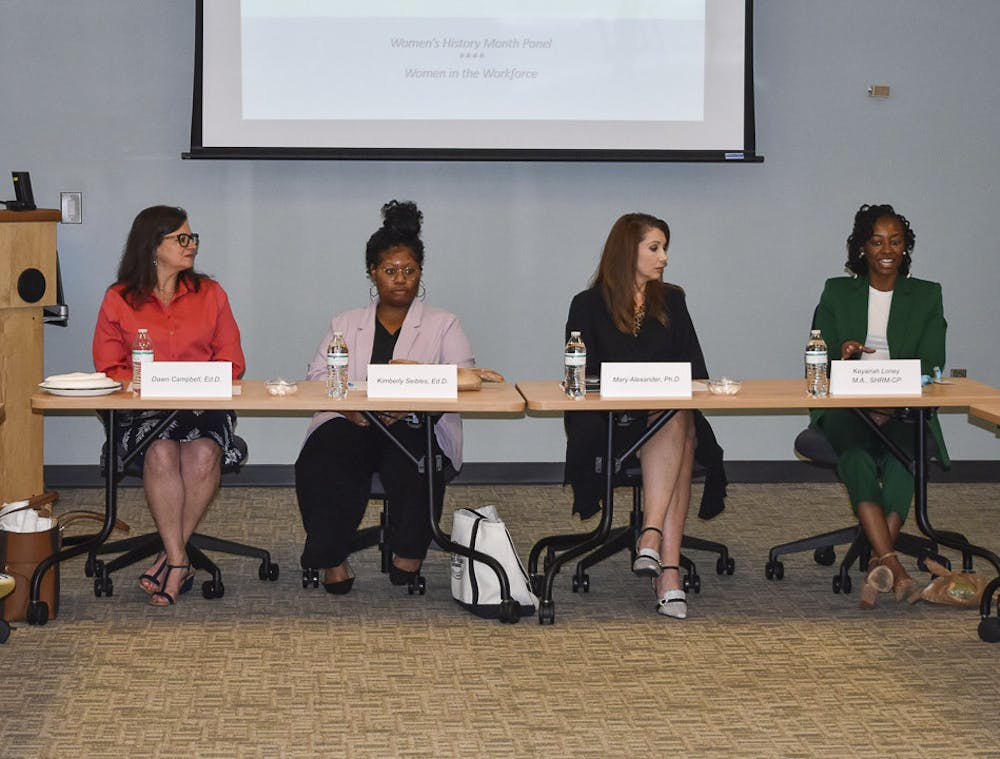The university’s Career Center hosted a panel to discuss women in the workforce in honor of Women’s History Month coming to an end Thursday afternoon.
Panelists covered a variety of topics, such as gender barriers, pay gaps, work-life balance and what leadership positions can look like for women.
“I like how each of them had different backgrounds,” Celia Hadjin, a third-year retail management studet, said. “You really got a different perspective on every question.”
At the end of the panel, participants were allowed to ask questions that ranged from advice on being a working mother to how to deal with sexualization in the workforce.
Mary Alexander, the assistant provost for academic administration at USC, said it takes women a little over a year to reach the same annual salary men receive.
According to Alexander, when a man works throughout the year and receives his annual salary in December, it takes a woman working the same job until March 27 of the next calendar year to match the annual salary that the man made. For women of color, it take's until October or November.
Alexander also said that the layoffs from COVID-19 have helped some women grow into leadership positions, while it set others back.
“For every one woman that moves into a director position, two women are leaving the industry,” Alexander said. “Since COVID, a lot of women are leaving the workplace, and so there are fewer women at that level to help pull all the rest of you up.”
Panelists also talked about how women should be as confident in the workforce as men, starting with negotiating low salaries that don’t accurately reflect their skillset.
Dawn Campbell, the undergraduate director of the Department of Women’s and Gender Studies, said that when she first entered the workforce, she had a difficult time saying “no“ to assignments that were offered to her.

“I’m very driven, and I kind of want to do it all. I really enjoy what I do career-wise, and so it’s kind of hard to say ‘no’ sometimes,” Campbell said. “You just can’t do it all.”
Campbell also said women are conditioned to do the “care work” at home and in the workplace and how the caregiver role disproportionately falls on women.
Following this, Alexander said that those who always take notes aren’t seen as leaders, but rather as helpers.
“Don’t always take on the housekeeping job," Alexander said. "Every committee is going to say, ‘Who wants to take notes?’ Don't raise your hand every single time.”
Another topic of discussion was how women can be successful both at home and in the workplace, as well as how working women should practice self-care and promote work-life balance.
Kimberly Seibles, the associate director of Diversity and Social Justice Education at the Office of Multicultural Student Affairs, said she keeps her work and home life completely separated.
“You are working to pay your bills so that you can go out and live life, not working so that you can continuously work, work, work to produce and make somebody else rich,” Seibles said.
Keyairah Loney, a talent acquisition consultant at Unum, also spoke in the panel about how practicing self-care can help ensure that everyone maintains a work-life balance.
“Whatever self-care is for you, make sure you do it for yourself,” Loney said.

